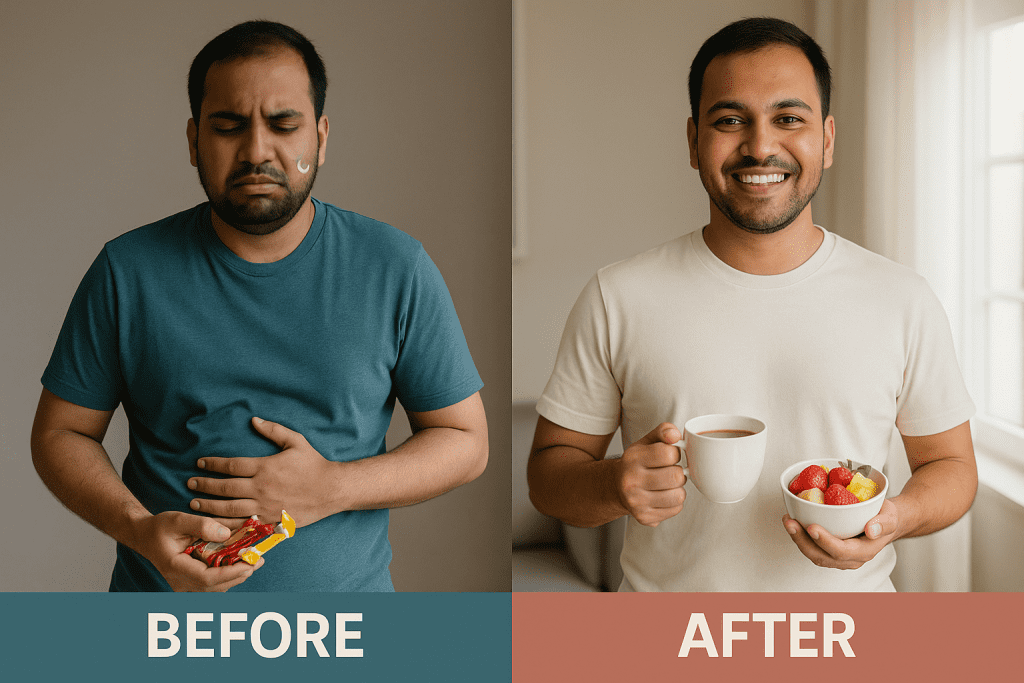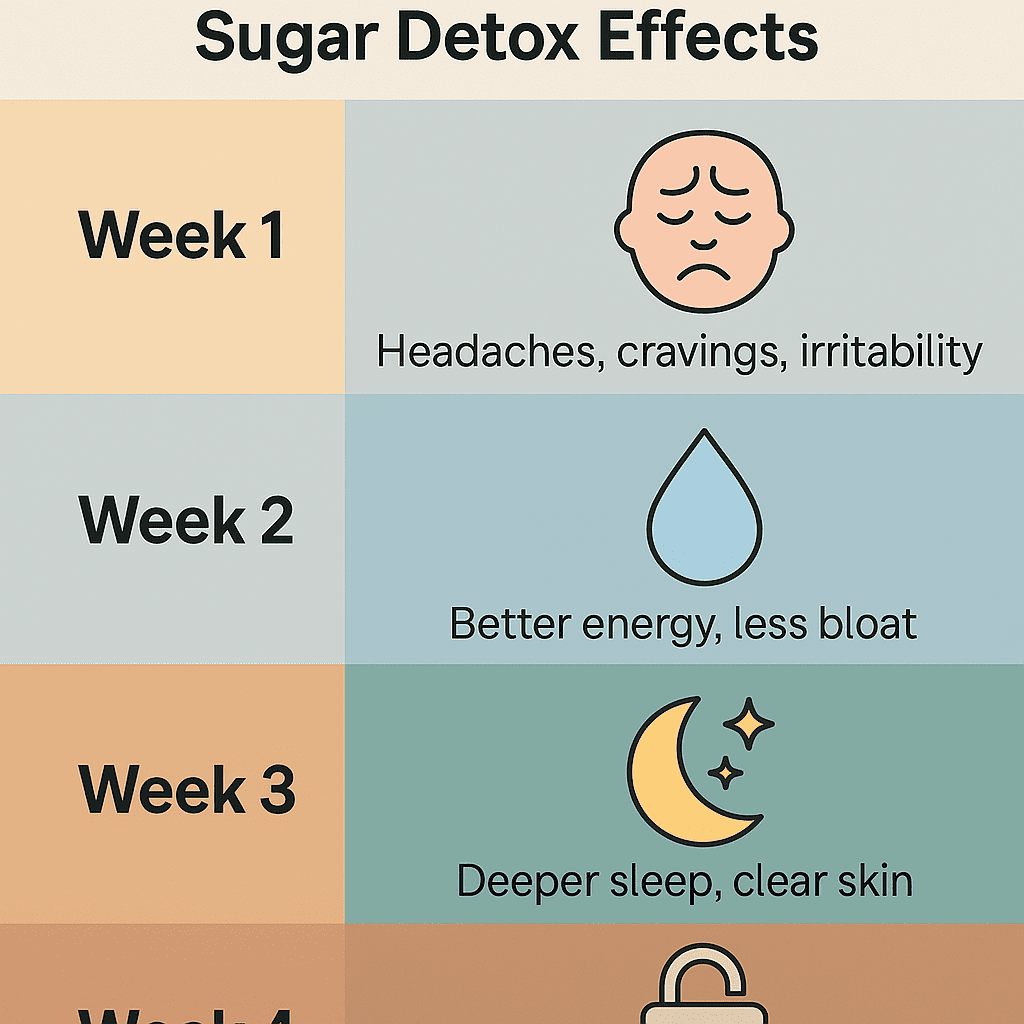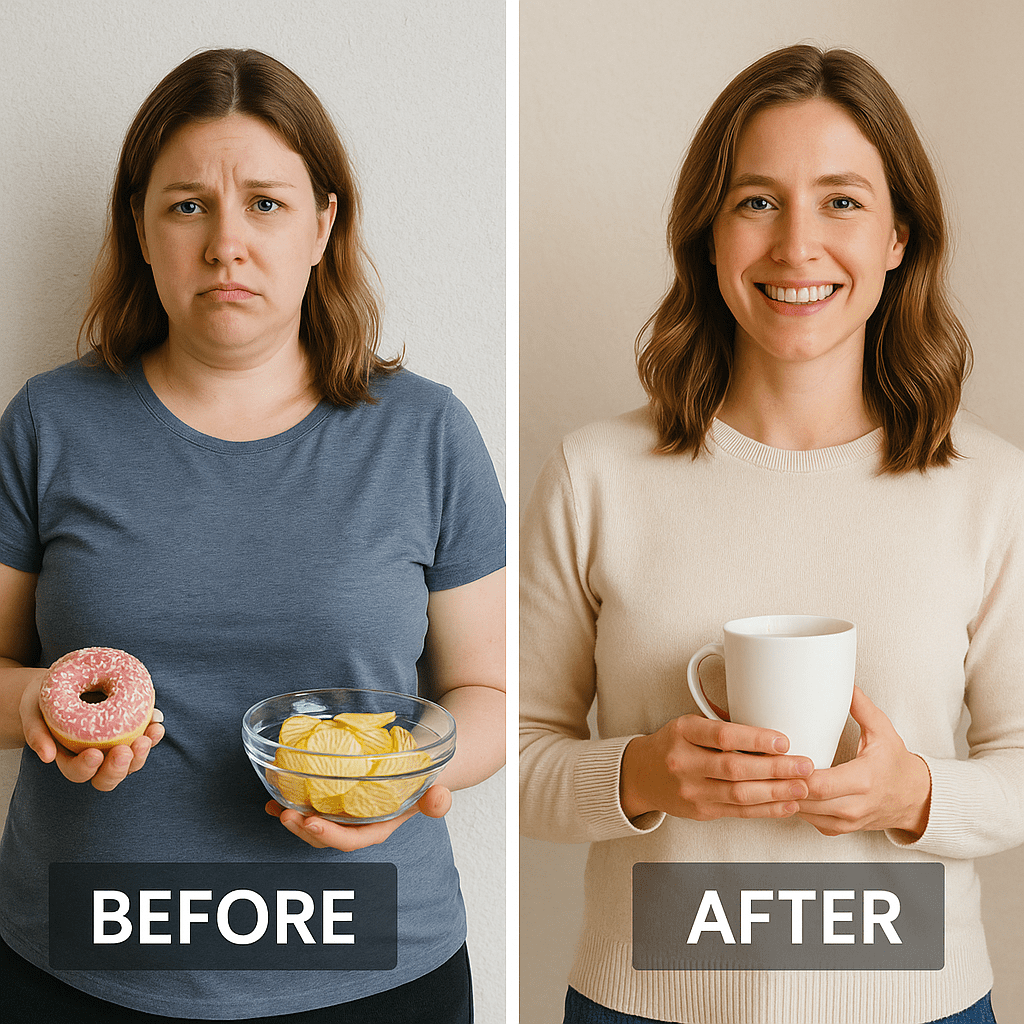I Gave Up Sugar for 30 Days — The Shocking Body and Mind Changes No One Warned Me About

Let’s be real — I’ve always had a sweet tooth. Morning chai felt incomplete without a biscuit, and no meal ever truly ended without something sugary. So when I decided to quit sugar for 30 days, I didn’t expect a miracle. I just wanted to prove to myself that I had some self-control.
What followed was something I didn’t see coming. From withdrawal headaches to a strange surge of mental clarity, this 30-day journey taught me more about my body and brain than any diet plan ever had.
This isn’t a dramatic detox story or a “go cold turkey and suffer” manual. It’s a real experience — how quitting sugar gradually changed me inside and out.
Week-by-Week Breakdown: What Really Happens to You

Week 1: The Sugar Crash Hits Hard
The first few days were rough.
I didn’t go overboard with the restrictions — just cut out all added sugar. No cookies, sweetened drinks, sugary sauces, or flavored yogurts. I still ate fruits, and I didn’t count hidden sugars like in bread or ketchup unless they were obvious.
By day 2, the cravings kicked in. I wasn’t just missing sugar — I was obsessing over it. Every ad, every smell, every memory made me think of dessert. My mood tanked, I was irritable, and surprisingly — I got headaches, especially in the evening. Turns out, sugar withdrawal is real.
Why? Because sugar triggers dopamine, the feel-good chemical. Your brain gets used to it. Take it away, and your system goes into mini panic mode — like quitting caffeine or even smoking. For me, that withdrawal lasted 3–5 days.
By day 5, I started noticing one thing: I was getting hungrier, but not craving junk. I wanted protein, real meals, and oddly — more water. It felt like my hunger signals were recalibrating.
Week 2: Energy Levels Normalize, Cravings Drop
This is where it got interesting. Around day 8 or 9, I realized I hadn’t felt that afternoon crash I usually get after lunch. You know the one — where you can’t focus, want a nap, and reach for something sweet to “wake up”? It didn’t happen.
My energy became steady, not explosive, but consistent throughout the day. I wasn’t bouncing off the walls, but I also wasn’t dragging myself through tasks.
One more thing changed: my sleep.
I didn’t expect this at all. I started falling asleep faster and waking up before my alarm. No more bloated, groggy mornings. Sugar affects cortisol and insulin levels, both of which mess with your sleep cycle. Once I cut it out, my body started resetting itself.
Also worth mentioning — my digestion improved. Less bloating, less gas, no weird stomach discomfort. I wasn’t eating less. I was just eating cleaner.
Week 3: Skin Changes, Mental Clarity, and New Habits
By week 3, something happened that made me pause: I looked in the mirror, and my skin looked… brighter. Not flawless, not airbrushed. But less puffy, fewer little breakouts, and definitely not oily. I hadn’t changed my skincare at all.
Multiple dermatologists back this up. Refined sugar contributes to inflammation, which can trigger acne and puffiness. Removing it gives your skin room to breathe and heal.
But what hit me more than anything else was the mental shift.
By now, I wasn’t craving sugar anymore. In fact, when I saw a donut, I didn’t even feel tempted — I felt neutral. That shocked me. My brain felt clearer, less foggy. I could focus longer, multitask better, and had fewer “blank” moments.
This wasn’t just about discipline. It was about freedom. I wasn’t trapped in a cycle of needing something sweet to get through my day. And that felt powerful.
Week 4: The Final Stretch and What I Learned
By the final week, I wasn’t even counting days anymore.
I was eating more mindfully, cooking more at home, checking labels for fun. I could taste the natural sweetness in carrots, milk, even almonds. My taste buds were no longer desensitized.
The biggest lesson? Sugar had been controlling more of my daily life than I realized. Not in an obvious way, but in small, quiet ways. A reward here, a pick-me-up there. And without it, I didn’t feel deprived. I felt in charge.
On day 30, I treated myself to a slice of cake. Not out of craving, but to test the waters. I enjoyed it — but halfway through, I had enough. It was too sweet. That was the moment I realized this wasn’t a diet experiment anymore. It was a mindset shift.
Is Quitting Sugar for 30 Days Worth It?
Here’s what I got out of it — no hype, just honesty:
- Cravings dropped by more than 70%
- Energy stayed stable, especially in the afternoon
- Sleep improved noticeably — faster to fall asleep, deeper rest
- Skin cleared up and looked more balanced
- Mood swings reduced, and I felt less anxious
- Digestion smoothed out, especially bloating
- Mental clarity and focus improved
No, I didn’t lose 10 pounds in 30 days. That wasn’t the goal. But I lost the need to rely on sugar to feel good, and that felt like real progress.
You don’t have to be perfect. You don’t need to demonize sugar forever. But even trying 30 days without added sugar shows you what your baseline health can feel like — and that’s a gift most of us don’t realize we need.
So if you’ve been thinking about quitting sugar, this is your sign. You’ll be surprised how much your body wants to feel better — once you let it.




